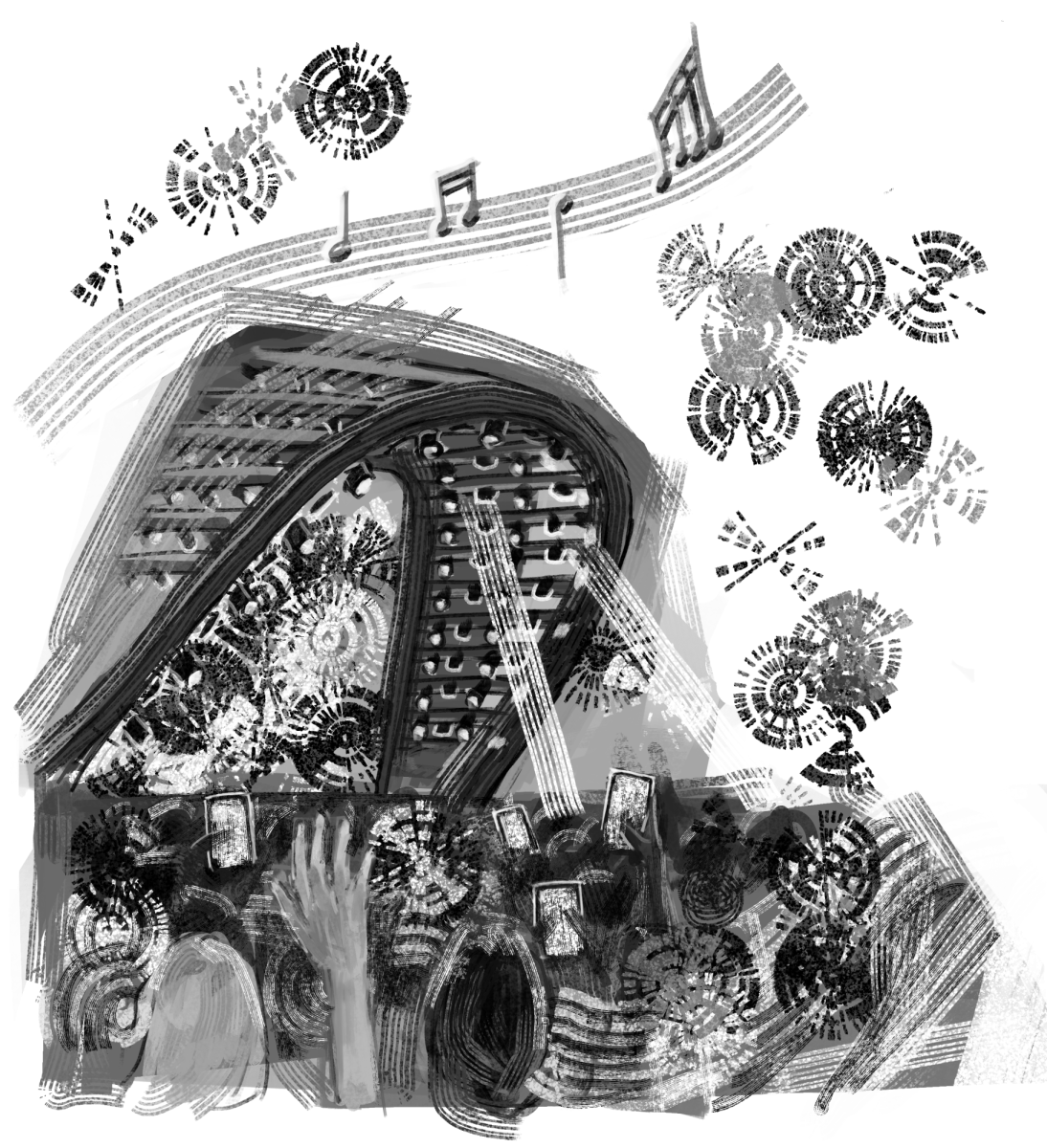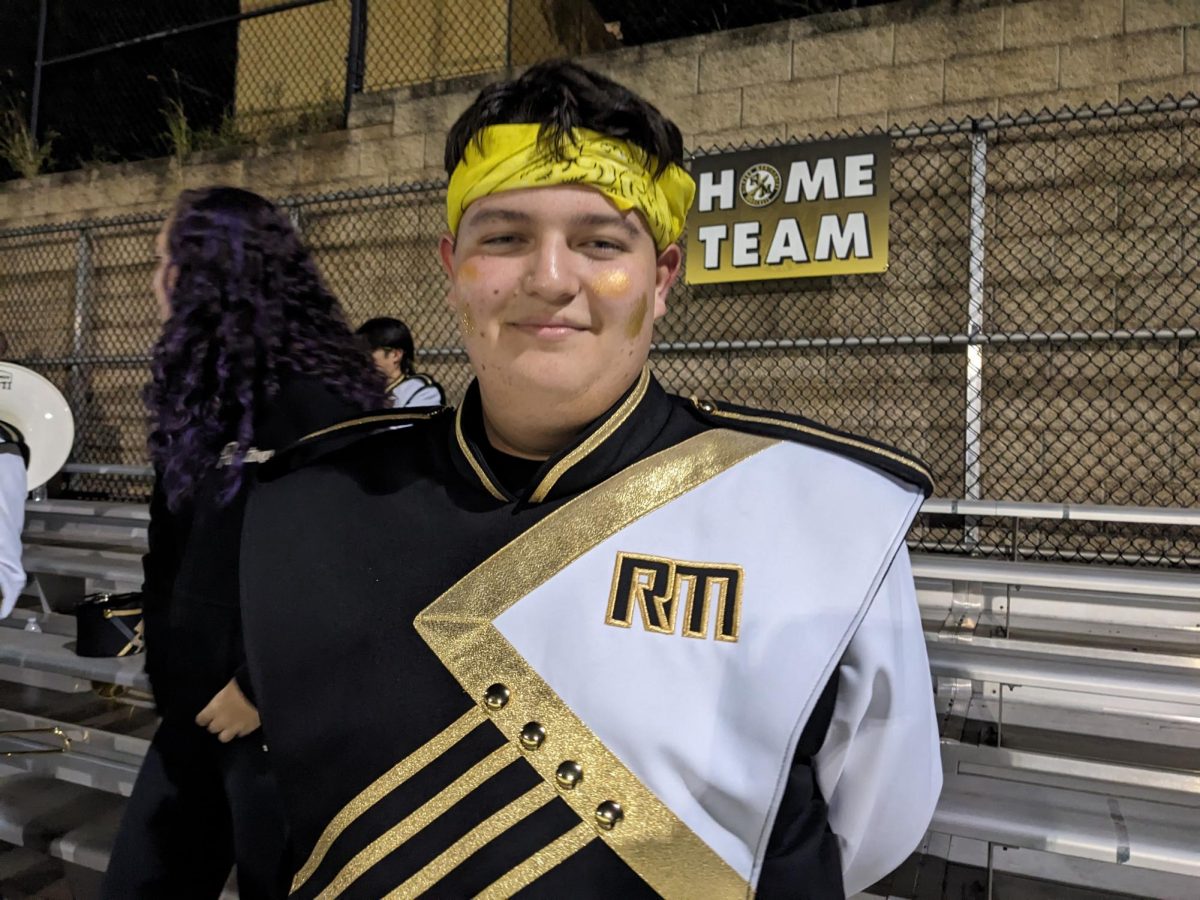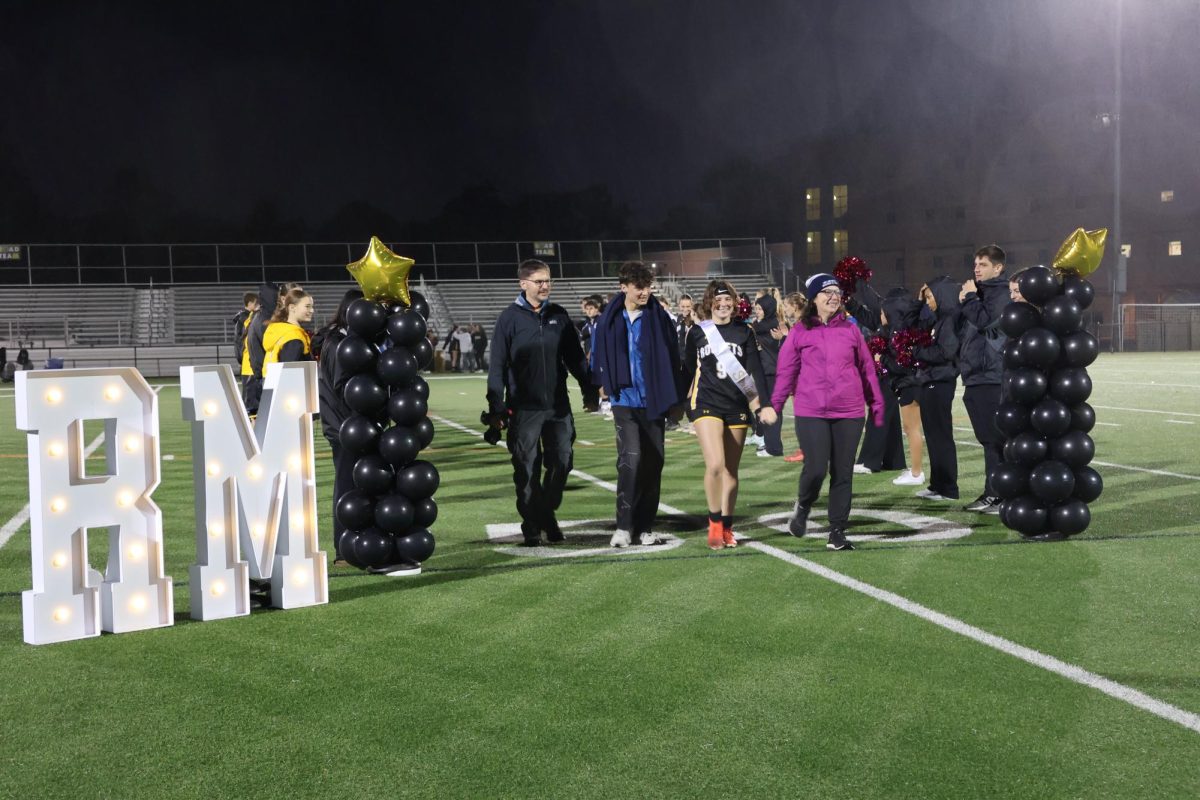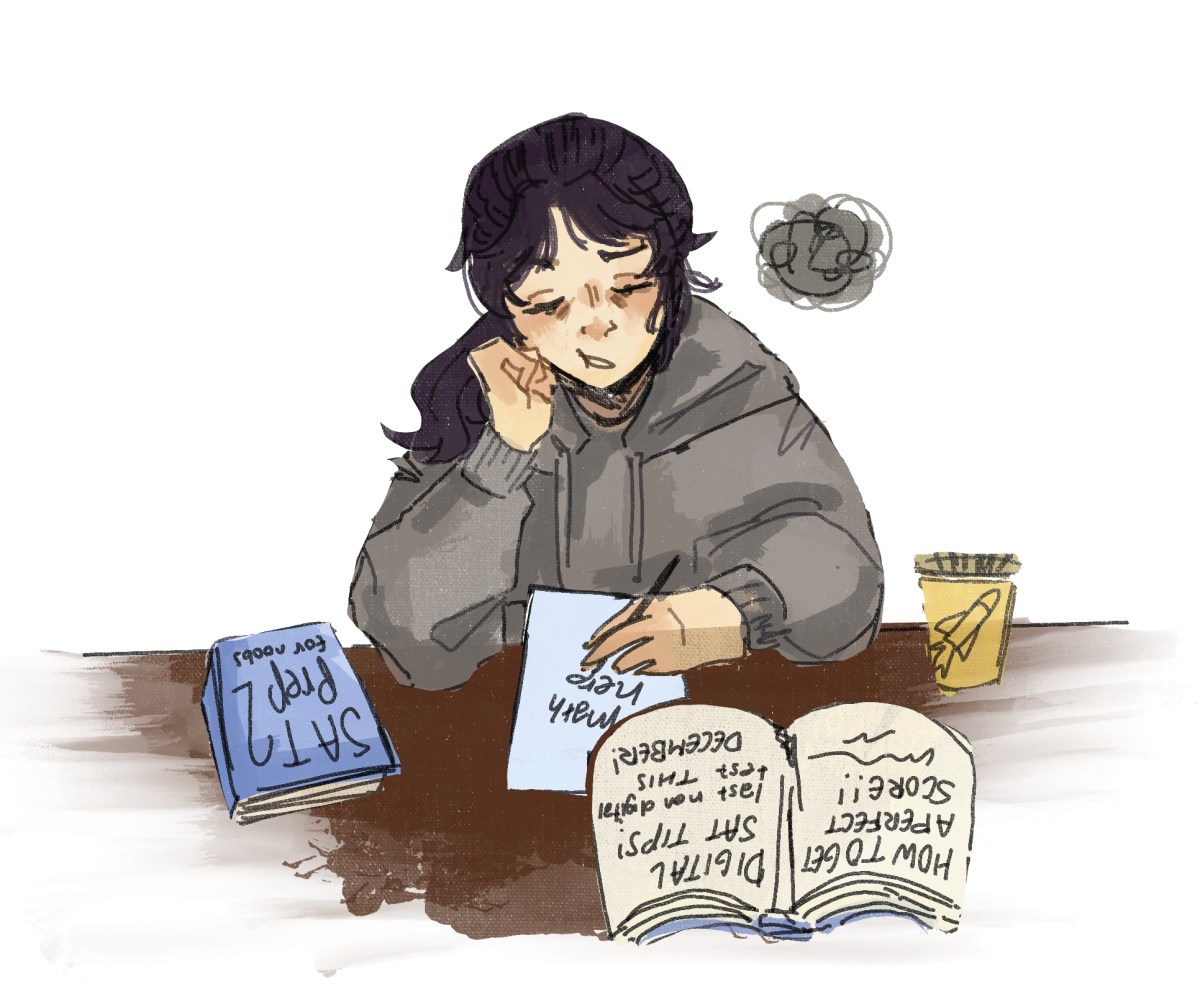Full of anticipation, audience members enter the auditorium to see the musical. As the lights go down, they hold their breath and wait on the edge of their seats. From an unseen place, the first notes of the long awaited overture seep out, beginning their magic.
The spotlight of the school musicals often go to the actors on stage, but there is a group of people without whom the show could never progress: the pit. The musicians behind the professional music that audiences will hear at RM’s production of Les Misérables this year are in fact the very same students that study side by side with some of the audience members.
“Pit, especially for this show, has a huge role in terms of making sure everything stays together and making sure the show is successful musically,” senior Liyanga de Silva, a cellist, said. The high-quality musicals that RM produces would not be possible without the role of the pit orchestra, who provide live, flexible background music rather than a rigid recording.
The final production never comes without great effort. “You really have to be dedicated to put in this amount of time,” music teacher Peter Perry, who is also the conductor of the pit orchestra, said.
“At first the rehearsal schedule isn’t bad and you definitely have time for other stuff, but the closer it gets to the show the more intense and frequent the rehearsal become,” de Silva said. Many of the pit members have to work out compromises between their other after school activities in order to read and rehearse the music efficiently.
During the famous “Hell Week, ” the pit orchestra rehearses every day until late at night with the cast and crew. The members stay until 9 to 10 pm while scrambling to finish homework and eat during rehearsal, sometimes using the floor and stands as tables.
The pit members need immense mental and physical strength in order to pull off the accompaniment, as the music requires attention even during the times when the musicians do not play. “It takes a lot of endurance. With Les Mis, it’s music the whole time, so we have to play the whole time. That’s three hours of continuous playing,” sophomore Alythia Vo said.
After rehearsing just the instrumental parts, the pit then has to match with the singers, who rehearse separately from the pit at first. Crowding into a tiny pit, the musicians struggle to make room for all the people and instruments needed.
These difficulties, however, have benefits. “We’re like one big family,” Vo said. The musicians form bonds with each other that inevitably form over the inside jokes and mutual hardships. Whenever the orchestra starts to look a little tired, Dr. Perry likes to tell them that they look ‘pit’-iful.
The hard work pays off, too. “It’s actually really cool to work with all the lights and the sounds and the actors,” sophomore Evelyn Sturrock, a harpist turned percussionist, said. “The best part about pit is seeing everyone’s hard work in our final performance,” senior Shelley Zhang, a violinist, said.
The show is indeed reflective of all the effort. The result of the painstaking days is a high level performance that will impress anyone who will come to see the production. “It’s always cool for me to see a group of students put together a product that matches anything you’d see at a professional theatre,” Dr. Perry said.
RM’s production of Les Misérables proved last weekend that it is just as professional and well-rehearsed as any of the school’s former shows. The music and acting is enough to move the audience to laughter and tears. Come support the pit orchestra and see the show this Friday and Saturday!



















